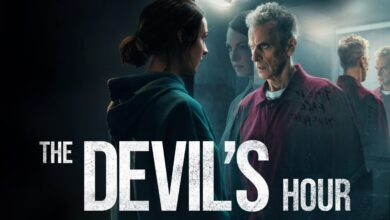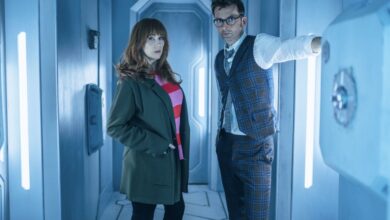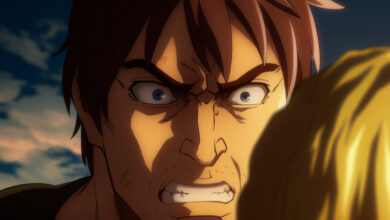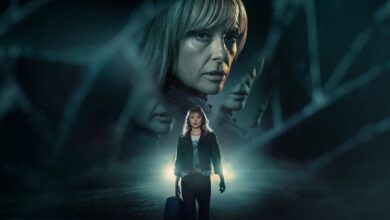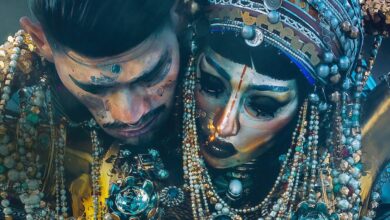Carnival Row Season 2 Review: A Beautiful Show to Watch on Prime Video
Cast: Cara Delevingne, Orlando Bloom, Simon McBurney, Tamzin Merchant, David Gyasi, Andrew Gower, Indira Varma, Jared Harris
Creators: René Echevarria, Travis Beacham
Streaming Platform: Amazon Prime Video
Filmyhype.com Ratings: 3/5 (three stars)
It’s been almost four years since Carnival Row, the fantasy series starring Orlando Bloom and Cara Delevingne, made its debut on the Amazon Prime Video platform. Four years during which a bit of everything happened, including almost forgetting about this series and its announced the second season. Yet, after a long process and the obvious delays caused by Covid-19, Carnival Row is back on Prime Video from February 17 with 10 new episodes, which however will also represent the conclusion for the series, not renewed for further seasons. Amazon Studios is now focused on producing far more profitable titles such as The Boys and The Lord of the Rings: The Rings of Power, and the desire to end the fairy tale adventures of the series with Bloom and Delevingne here seems to be the obvious consequence of a marked change of interest. On the other hand, the reconstruction of a neo-Victorian town where several fantastic creatures coexist among humans also has a considerable cost.

However, it is difficult not to think that among the reasons that led to the decision to make the second season also the last there may be the lack of interest aroused by the series. In our Carnival Row Season 2 review, we will first go for a brief recap of what happened at the end of the first season and then take a look – obviously without spoilers – at the fate of Philo and Vignette after their imprisonment in the ghetto reserved for girls. fairy creatures. Season 2 episodes, 10 in all, will be released weekly on Prime Video, but we were able to preview them in their entirety. Discovering, unfortunately, that the long wait for the series created by René Echevarria and Travis Beacham has not been repaid in the way we would have expected.
Carnival Row Season 2 Review: The Story Plot
During his investigations, Philo (Orlando Bloom) discovered that the perpetrator of the heinous crimes was none other than a Darkasher, a monstrous creature made up of parts of dead animals and created by a human being who becomes, to all intents and purposes, his master. In this case, it was Piety (Indira Varma) who gave life to the ferocious to eliminate eating the police inspector, the illegitimate son of Chancellor Absalom Breakspear (Jared Harris) – husband of Piety and Aisling – a fairy – and, therefore, half fairy creature, a “critch”. Once Piety and, consequently, the monster have been eliminated, a period of peace seems to lie ahead for the city of Burgue. But when Jonah Breakspear (Arty Froushan) takes the place of his father Absalom in Parliament and forges an alliance with Sophie Longerbane (Caroline Ford) – the one who had revealed Philo to Piety just to unleash chaos – a new period of repression begins for fairy creatures. When Philo and Vignette try to escape the city, they are blocked and the girl is relegated to Carnival Row, a real ghetto for critches. To stay with her, Philo declares himself half-fairy, starting a new life for both.
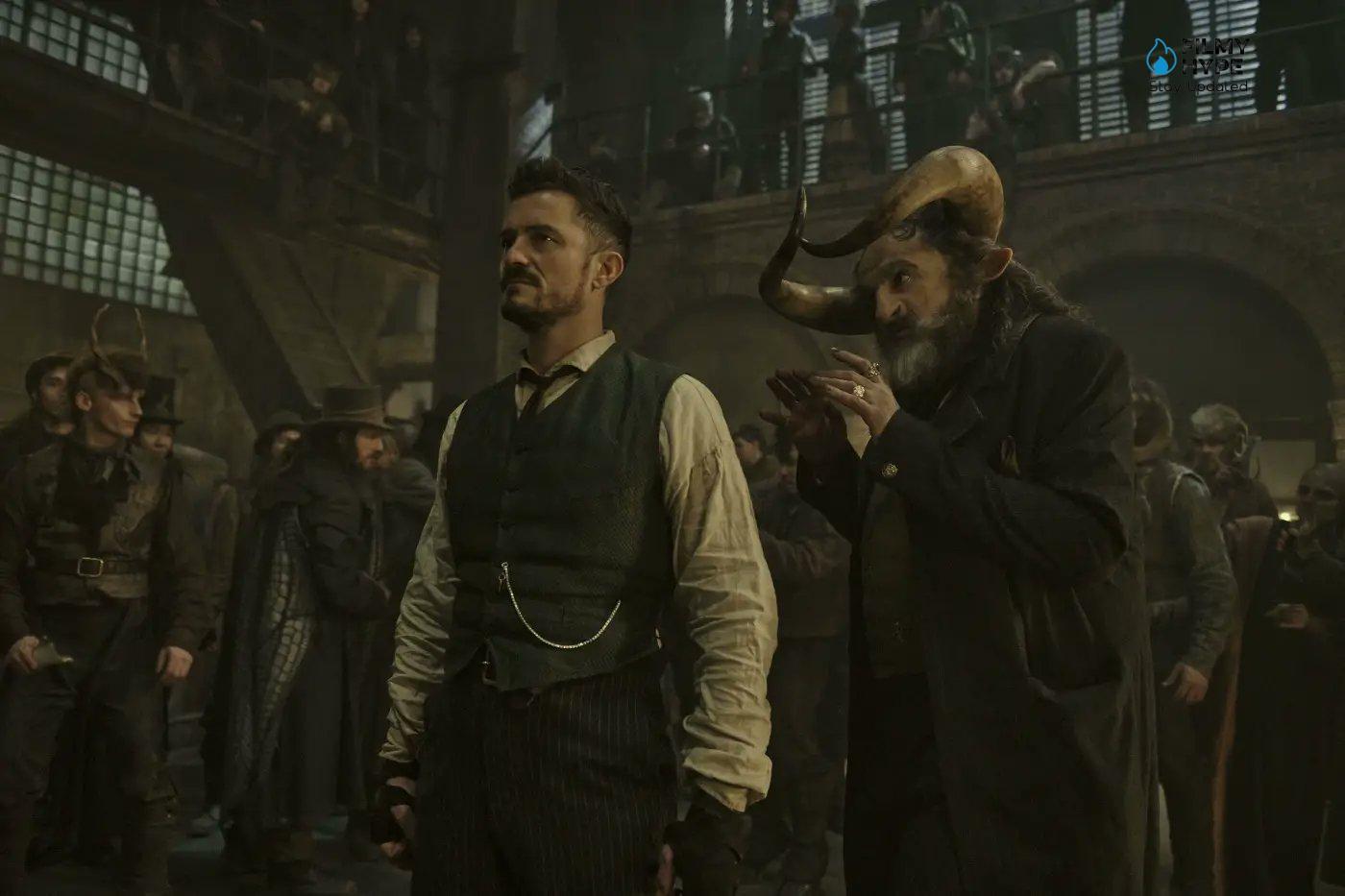
In Carnival Row Season 2, Burgue is on the brink of civil war, due to the edict issued by the new chancellor Jonah Breakspear which – as we have already said – relegates all the fairy creatures of the city to the Carnival Row ghetto. And while Philo, a disgraced lawman, helps the police solve a series of murders even more puzzling than the previous ones, Vignette is busy with the Black Ravens, a criminal band of fairies who survive on smuggling and gambling. , as they try to take revenge for the abuses suffered by the leaders of human beings. Philo and Vignette thus find themselves increasingly in disagreement on which is the right path to pursue to obtain the ransom of the fairy creatures. Meanwhile, a new threat arrives from overseas.
Carnival Row Season 2 Review and Analysis
Naturally (and fortunately) not everything shown in the ten new episodes fits into this general feeling of listlessness. The investigations conducted by Philo, although sometimes closely resembling those carried out in the first season, boast that certain charm typical of the yellow genre, while some events of a political nature appear to have real importance on a narrative level and are staged through directing choices more attentive and captivating. However, what once again allows the series to stand out is its look, which mixes the Victorian era and the fantasy world, where the decadence and filth of places and characters are contrasted with that welcome sense of magic and enchantment.
In light of these valuable elements and the unexploited possibilities, it can be argued that Carnival Row has certainly been the victim of external factors, between fierce competition and a lack of production support. It was difficult, in the absence of the latter, to be able to create something memorable. The result, however, is below expectations than one might have imagined. Sure, with a little luck, the series could find its audience, but it’s hard to imagine that it will be remembered as anything other than a missed opportunity, a product with unfinished potential, where no concrete sense of wonder has arisen from the magic concocted.
The key theme around which these new episodes of Carnival Row revolve is certainly that of the fight against oppression. Although the balance between human beings and fairy creatures was already quite precarious in the first season of the series, Jonah’s edict and the consequent relegation to the critch ghetto give rise to a new and incurable rift between the two worlds. A rift that, as we will see from the beginning, some will try to smooth out, while others will only exacerbate with their actions. The latter is the case of the Black Raven gang, devoted to a desperate fight against the oppressor who, however, does nothing but fuel further violence. It is on this issue that Philo and Vignette are divided: the former is a supporter of more diplomatic action,
The main – and not insignificant – flaw that we have found in this second season of Carnival Row lies in its script. In fact, during the ten episodes that compose it, we perceived a lack of direction in the entire narrative structure, as if the desire to give life to a sprawling show had led to an excessive dispersion, with the different subplots and the various completely unconnected characters. And even the attempt to unite everything under the great hat of the struggle between human beings and fairy creatures then ends up in fleeting reflections on important but superficially treated social concepts. We see this fragmentation primarily in the relationship between those who are the protagonists of the show, united at all costs in the finale of the first season and now each intent on pursuing – in a completely separate way – their own goals. But we also see it following the journey of Argeus and Imogen, interesting but too distant, both geographically and narratively from the main story.
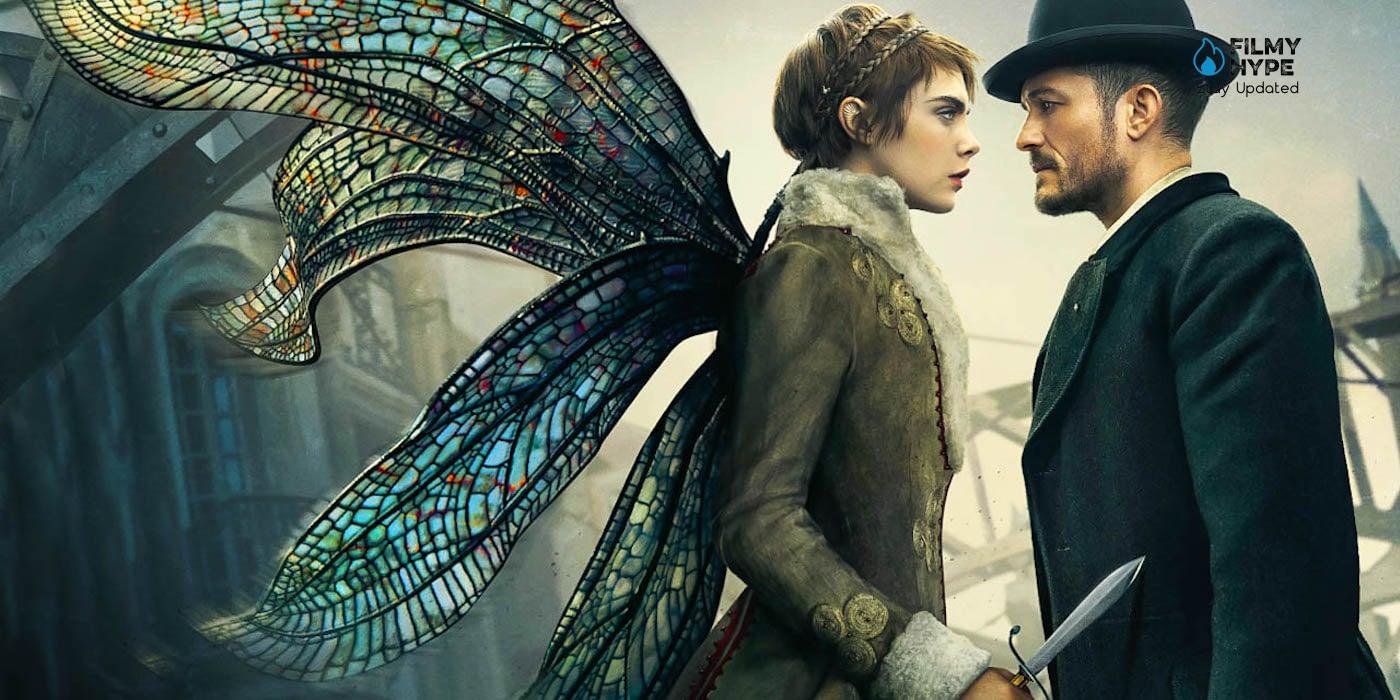
One of the strengths of Carnival Row certainly remains the special effects sector which is confirmed, as in the first season, to be top-notch. The long period of time available and probably a very high budget from Amazon Studios have given life to a show in which every element appears studied in detail, from the fairy creatures we come across during the episodes to the extremely detailed locations and realistic. An aspect that, net of a script that does not live up to expectations, still allows the viewer to immerse themselves in the steampunk and neo-Victorian atmospheres of Burgue, making Carnival Row a series that is at least visually appealing.
The second season of Carnival can count on many of the familiar faces that we have come to know in previous episodes. We find, of course, Cara Delevingne and Orlando Bloom, respectively in the role of Vignette and Philo, but also Karla Crome (Tourmaline, fairy poet friend of Vignette), Andrew Gower (Ezra, Imogen’s brother) and Simon McBurney (Runyan, artist of human road), plus several new entries (Jay Ali, Joanne Whalley, and Joanne Whalley, to name a few) whose characters we will discover, little by little, as we advance in the vision. Although the interpretation provides quality performances capable of reviving, at least in part, the fortunes of the show, the fragmented script, unfortunately, weakens the characterization, returning flattened and uninteresting characters.
Carnival Row Season 2 Review: The Last Words
After a wait of almost four years, Carnival Row Season 2 does not prove to live up to expectations, with a disjointed and dispersive narrative system and flattened characters. The special effects sector remains a strong point of the show, which creates a visually captivating setting. Carnival Row Season 2 comes four years after the first. A time that, however, has not been used to give life to something impressive but rather seems to have negatively affected the new episodes, characterized by a certain lack of homogeneity and listlessness. A few scattered scenes or sequences and the fantasy context in which the story is set contribute to making this new season pleasant in its way.



